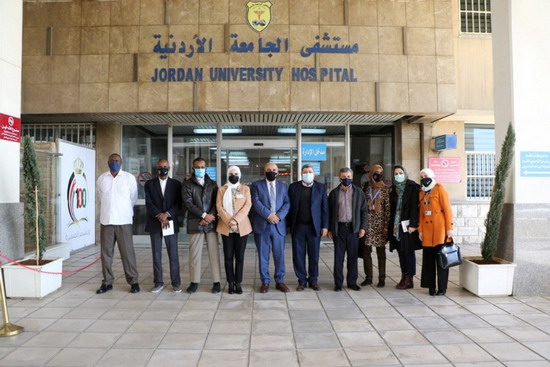
In response to the increasing burden of unintentional poisoning in Sudan, the Federal Ministry of Health (FMOH) of Sudan has decided to establish a national poison control centre. Initially, the centre is to offer information services and will then be gradually upgraded to offering surveillance and clinical management services.
To support this important development, CEHA organized an expert consultation in Jordan to help the FMOH to draw up a road map for establishing the poison centre based on the experience of different national, regional and international poison centres. The consultation was attended physically by experts from the FMOH, WHO Sudan country office, CEHA and the Jordan Poison Centre, and virtually by experts from WHO headquarters, the Middle East and North Africa Clinical Toxicology Association (MENATOX) network and poison centres in Egypt, Morocco, Oman and Tunisia.
The consultation provided a good opportunity to brief the Sudanese experts on the suggested structure of the poison control centre, the needed capabilities and capacities, the minimum requirements for establishing a poison centre and how to create a road map for establishing the centre.
During the first two days of the consultation, CEHA and the Sudanese participants discussed environmental health priorities and collaboration opportunities for Sudan, with a special focus on chemical safety. Recent WHO guidelines for establishing a poison centre (2021) were presented and experts from the MENATOX network and the poison centres in Egypt, Jordan, Morocco, Oman and Tunisia, shared their experiences in establishing poison control centres. The Sudanese participants then developed a road map for the establishment of the national poison control centre, with support from CEHA and the other poison centre experts.
The last day of the meeting included a field visit to the Jordanian National Drug and Poison Information Centre and the toxicological laboratories at Jordan University Hospital to share expertise regarding the collecting and analysing of poisoning data, advising on the management of poisoning cases over the phone, the health impacts of chemical incidents, characterizing the epidemiology of poisoning for the prioritization of preventive efforts, providing toxicological analysis services and acting as a sentinel to detect chemical release. Through these roles, poisons centres can contribute to national capacities for implementation of the International Health Regulations (2005).


